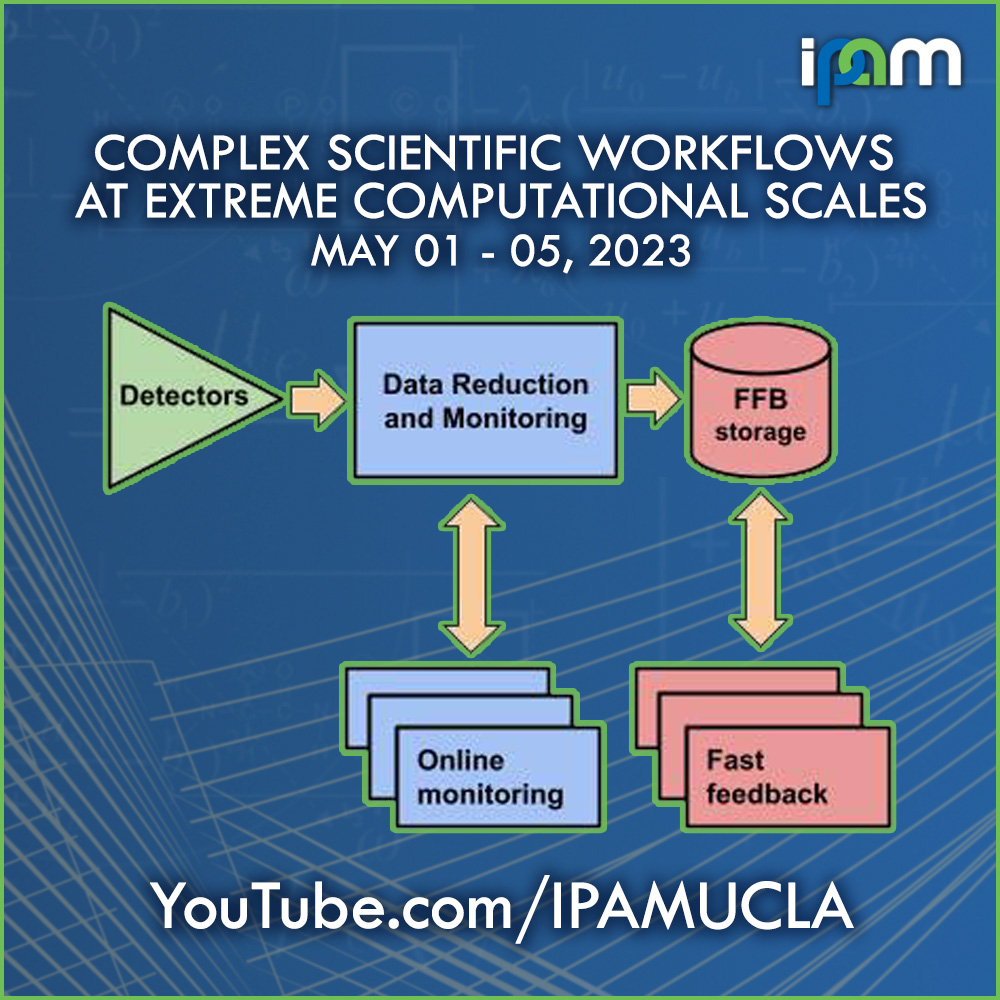Maxim Ziatdinov - From Human-Centric to AI-Driven Experimentation Workflows for Materials
Presenter
May 2, 2023
Abstract
Recorded 02 May 2023. Maxim Ziatdinov of Oak Ridge National Laboratory presents "From Human-Centric to AI-Driven Experimentation Workflows for Materials Characterization" at IPAM's workshop for Complex Scientific Workflows at Extreme Computational Scales.
Abstract: The integration of AI/ML methods and automated experimentation in materials discovery offers a promising opportunity to develop optimized workflows that can efficiently guide experimental protocols based on previous experiments and domain knowledge. Developing such workflows requires systematic design, implementation, and building of characterization techniques while balancing the cost of tools and required characterization times with knowledge gains.
Multiresolution structure-property characterization workflows are essential in comprehending the structure-property relationships in materials, as they enable the exploration of properties and functionalities on all length scales. Single-step direct workflows are similar to existing human-centric workflows but use pre-trained neural networks to recognize a priori defined objects of interest in real time. The forward experiments, such as single-point spectroscopic measurements, are then conducted based on the coordinates of the discovered objects. Here, foundational models may be necessary to ensure the reliability and robustness of the workflow, and in some instances, they can be trained on data produced by first-principles simulations.
In contrast, single-step inverse workflows require the operator to define the characteristics that make a spectrum "interesting," and the deep kernel learning-based algorithm learns what elements of the material’s structure maximize this reward and guides the exploration of the material accordingly.
The next steps toward multi-step imaging and characterization workflows built upon single-step workflows will be discussed. These require an iterative balancing of structural learning and understanding structure-property relationships across various length scales. Lastly, possible mechanisms for automated hypothesis generation and their integration into machine learning-driven experimental workflows will be addressed.
Learn more online at: hhttp://www.ipam.ucla.edu/programs/workshops/workshop-iii-complex-scientific-workflows-at-extreme-computational-scales/
